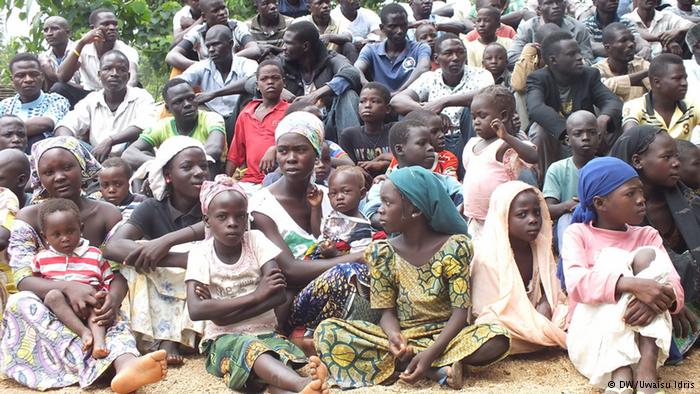Zinariya Consult, a research development and policy advocacy actor said it was estimated that more than 300,000 people were displaced in four states due to the farmers and herders crisis in Nigeria.
One of the lead researchers commissioned for the work by Zinariya Consults, Dr Joseph Ochogwu, and Associate Research Professor with the Institute for Peace and Conflict Resolution revealed this while presenting the policy brief.
The research presentation which listed the states as Benue, Plateau, Nasarawa and Taraba held on Thursday in Abuja with the topic: “Trends and Dynamics of Conflict between Farmers and Pastoralists in Nigeria’s Benue Valley.
According to Ochogwu, Nigeria’s Benue valley comprising Benue, Plateau, Taraba, Nasarawa, Adamawa and Kaduna have experienced escalating tensions between farmers and herders.
This he said had led to deaths, loss of livelihoods, displacements and disruption of states’ economy within the area.
He said that the conflict which was primarily a contest over land and water was threatening the country’s food security and stability.
“The current crisis has assumed ethnic and religious dimensions.
“From 2001 to 2018, about 60,000 deaths were recorded in multiple clashes, it is estimated that more than 300,000 were displaced across states, 176,000 in Benue, about 100,000 in plateau, and 100,000 in Nasarawa and about 19,000 in Taraba.
“These displacements were mainly due to the surge of attacks and counter-attacks by the headers and farmers communities, in Benue alone, it is estimated that the crisis led to more than N400 billion economic losses resulting from destruction of properties.
“Between 2017 and May 2020, 645 attacks were carried out, 2,539 people were killed and 254 kidnappings were recorded in various states in Nigeria.’’
Ochogwu said that key findings of the research included trends and pater of the conflict, gender dimension of the conflict, demographic shift, mental health and psychological support, and community resilience among others.
He noted that between 2018 and 2019, access to water and grazing land became more competitive.
This, Ochogwu noted led to frequent arguments, adding that there was distrust due to differences in ethno-religious and cultural identities and values.
He said that the research made some recommendations to address the farmers and herders crisis in Nigeria which were informed by critical analysis of the trends and dynamics of the conflict in Benue, Plateau and Taraba states.
He said that governments at all levels should work together to deploy a joint task force comprising of Army, Navy, Airforce, Police, para-military and civil institutions to restore law and order and build the population’s confidence in the government.
Ochogwu said that the complex nature of the conflict required participatory, inclusive, coordinated and sustainable solutions.
He urged the state governments to strengthen the already existing community policing structure such as vigilantes for intelligence gathering.
According to him, the research recommended that development partners should partner with the government and community-based organisations to ensure that women are mainstreamed in peace building programmes.
He said that the governments in key states should work with Civil Society Organisations, media organisations, gender and peace building experts to develop programmes using conventional media, and social media among others to deconstruct social norms.
Ochogwu urged the Federal Government to order the investigation of all recent violence between farmers and pastoralists and expedite the trails of individuals or groups found to have participated, sponsored or involved in violence.
He said that the research recommended that governments should work together to tackle youth unemployment and underemployment.
Ochogwu said that state governments in Benue, Plateau and Taraba should recognise the critical role of religious and traditional institutions in peace building in the communities and include them in direct government and policy formulation process.
He said that formal multi-stakeholders alternative resolution mechanism should be set up at the state and council levels, adding that projects on social protection after conflicts such assets transfers and capacity building for income diversification should be supported by government.
The News Agency of Nigeria (NAN) reports that the research was carried out by Zinariya with support from Global Rights and Open Society Initiative for West Africa (OSIWA).

 Health5 days ago
Health5 days ago
 Entertainment6 days ago
Entertainment6 days ago
 Crime5 days ago
Crime5 days ago
 Education7 days ago
Education7 days ago
 Health7 days ago
Health7 days ago
 Comments and Issues6 days ago
Comments and Issues6 days ago
 Football6 days ago
Football6 days ago
 Latest6 days ago
Latest6 days ago

